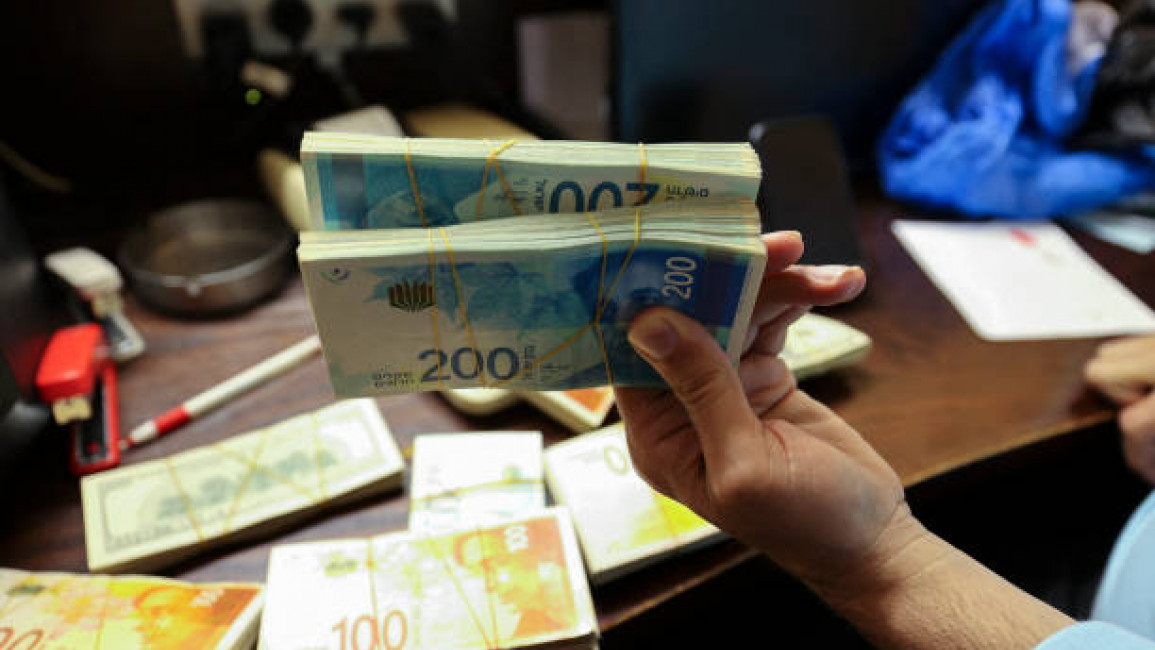US broke Trump-era funding freeze to Palestinians with $10m payment, PA reveal
The United States broke a years-long freeze on financial aid to the Palestinian Authority with a 32.2 million shekel ($10.2 million) payment to the PA in October, statistics released by the Palestinian Ministry of Finance on Monday revealed.
The payment came amid an ongoing financial crisis described by Palestinian officials as the worst in the PA’s history.
The US had stopped all financial aid to the PA in the first quarter of 2017 under the Trump administration, which also cut all funds to UNRWA, the UN agency for relief to Palestinian refugees.
"Not much of an impact"
Earlier in October, the Palestinian government stated that it had received only 10% of the usual amount of foreign aid. Later, the European Union announced a transfer of 15.6 million Euros to the PA in order to help it pay its public service salaries.
In mid-November, PA financial advisor Estephan Salameh told The New Arab that "the crisis is partially due to the interruption of financial aid from international donors, especially the European Union, which hasn’t sent any aid at all to the PA for the year 2021”.
Biden has promised to reverse Trump's huge aid cuts to Palestinians, meaning US money will flow back into the coffers of the Palestinian Authority. But this model of an "economic peace" is antithetical to Palestinian liberation. - @yarahawari https://t.co/2UaJaDSbiF pic.twitter.com/Aeqd2fHer1
— Al-Shabaka الشبكة (@AlShabaka) January 21, 2021
Palestinian economic analyst Zayne Abu Daqqa is skeptical that the US latest aid will have much of an impact on the PA’s financial situation.
“The largest source of income of the PA is custom taxes that are collected by Israel, who retains hundreds of millions of dollars of it for political reasons”, Abu Daqqa told The New Arab. “Then there is the foreign aid, the largest part of which comes from the European Union,” he added.
"UNRWA head Lazzarini said the agency raised enough donations to cover only 48 percent of its budget in 2022 and 2023."
— Palestine Deep Dive (@PDeepdive) December 1, 2021
Article from @AJEnglish https://t.co/0qIvw8Fawx
Prisoners pay and tax withholding
The Trump administration had cut its funding to the PA over its program of social aid to the families of Palestinian prisoners in Israel and those killed by Israel, considering that it constitutes financing ‘terrorism’.
According to Abu Daqqa, “the US and the Europeans have been pushing for a new model of social aid, which integrates those families in the regular social aid program, without singling them out as a special sector. Meanwhile, most of the foreign aid has been going directly to civil society”.
UN Palestinian refugee agency faces funding crisis https://t.co/zxNUTgIhPl
— The New Arab (@The_NewArab) November 30, 2021
Israel collects around $190 million per month in the form of custom taxes on behalf of the PA. Under the Paris economic protocol, signed in 1994 between the PLO and Israel, the latter must transfer this tax money to the PA, and keep a 3% commission for itself.
Back in July, Israel froze the transfer of $183 million of custom tax money to the PA, equivalent to the amount paid to families of Palestinian prisoners and killed during 2020.
The Israeli government's decision to deduct millions of US dollars from Palestinian tax revenues is set to exacerbate the Palestinian Authority financial crisis in 2020: https://t.co/ZYeWf9DcIj pic.twitter.com/7biX2c2JF1
— Al-Shabaka الشبكة (@AlShabaka) January 7, 2020
Last April, the Biden administration announced it planned to give the Palestinians $235 million in financial aid, with two thirds of the money to be given to UNRWA.
But the real solution, according to Abu Daqqa, “lies first in solving the dependency in Israel to collect custom taxes, and in changing the model of the Palestinian economy to depend more on production and export, rather than relying on taxes coming from imports”.



